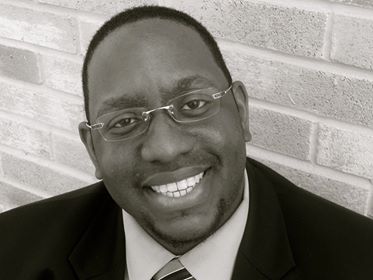Making a Masterpiece? By Jason Hines
It is not often that Supreme Court cases make their way into the social and cultural consciousness.[1] This year, it seemed that the Masterpiece Cakeshop decision would be that case. Jack Phillips, owner of the Masterpiece Cakeshop, refused to bake a cake for a same-sex couple’s wedding based on his religious beliefs about the nature of marriage. The case presented the interesting legal question of whether someone can use their religious beliefs as a justification for discrimination. Although the Court ruled in Phillips’ favor, the ruling did not settle the most important question. Instead, Justice Kennedy reached for technicality, finding that the state Commission that originally ruled against the baker did not give due deference and respect to his religious beliefs in coming to their decision.[2] So Phillips won, but it was a decision that would not protect any other baker in a similar situation, and would not even protect Phillips if he decided to continue to discriminate against different sexual orientations.[3]
The facts that spawned the Masterpiece Cakeshop decision occurred in 2012. Events from 2017 have Mr. Phillips considering legal action again. In June of last year, Autumn Scardina, a transgender lawyer, sought a pink and blue cake from Masterpiece to celebrate her coming out as transgender. Once again, based on his religious beliefs, Phillips refused. In June of this year, the same Commission that ruled against Phillips with respect to the same-sex couple charged these two parties to enter compulsory mediation. Phillips objected to the decision publicly and if he refuses the process, he could find himself petitioning the Supreme Court to hear his case again.
First, we should deal with the heart of the matter. In abstract, Phillips’ case makes a lot of intuitive sense. It is the essential sticking point of religious liberty. What should we as a society do when a person’s religious beliefs dictate that they treat someone unfairly? As much as I selfishly like as much freedom as possible to live out my religion as I see fit, I don’t think either the Bible or our framework of laws can allow this type of discrimination. From a political and legal perspective, allowing this type of discrimination opens the door to justifying other more established forms of discrimination. If Phillips can discriminate based on sexual orientation, can he discriminate based on race? Religion? Disability? I fail to see the legal argument for why he cannot, except that those forms of discrimination have more consensus as improper than discrimination against sexual orientation. Moreover, to allow this type of discrimination is to create a truly fractured society. The law cannot be written from the perspective of one baker; it has to consider what would happen if every baker did what Phillips wants.[4] In that world, the more discriminatory attributes one has, the more difficult it will be for that person to receive goods and services.[5] From a Christian perspective, I find it compelling that God does exactly what Phillips refuses to do. The entire biblical record is the story of God giving blessings to beings who live in ways that God would not support and take God’s blessings and misuse them. If God is not above blessing those with whom God disagrees, who are we as Christ’s disciples to do any less?
Turning to Masterpiece’s latest legal wrangling, at first glance it seems ironic that the decision in the first Masterpiece case has the potential to hamstring the second. The first case gives the impression that if the Commissioner changed his rhetoric and were more amenable to faith in general, there was nothing specifically wrong with the Commission’s ruling. Therefore, if the Commissioner is more careful with his language this time around, the Commission could rule against Phillips without reproach. However, upon further reflection, it seems that Phillips and his lawyers have their finger on the pulse of Supreme Court politics. While a Court with Justice Kennedy as the swing vote was reluctant to make a sweeping proclamation about the question in chief, a Court with Justice Kavanaugh on it and Chief Justice Roberts as the swing vote would be more accommodating to Phillips and his argument. The changing composition of the Court will have a conservative effect on several areas of American life. You can add religious freedom and freedom from religion to that list as well.
Jason Hines is a former attorney with a doctorate in Religion, Politics, and Society from the J.M. Dawson Institute of Church-State Studies at Baylor University. He is also an assistant professor at Adventist University of Health Sciences. He blogs about religious liberty and other issues at www.TheHinesight.Blogspot.com.
[1] Though I would argue that it is probably more common now due to the expansion of media and hyperpartisanship.
[2] I’m being kind here. I believe that Justice Kennedy misinterpreted the statements of the one Commissioner who commented and spun together a rather flimsy rationale on that basis.
[3] To be fair, it has been reported that Phillips decided to not make any wedding cakes for anyone, so there is little chance that this specific set of circumstances would happen again.
[4] This particularly addresses the popular counterargument that the couple could just go somewhere else. If Phillips can discriminate, what happens when every bakery in the town, the region, the state decide that they agree with Phillips and want to do the same?
[5] For example, the gay, old, Muslim, Black woman would be in serious trouble.

